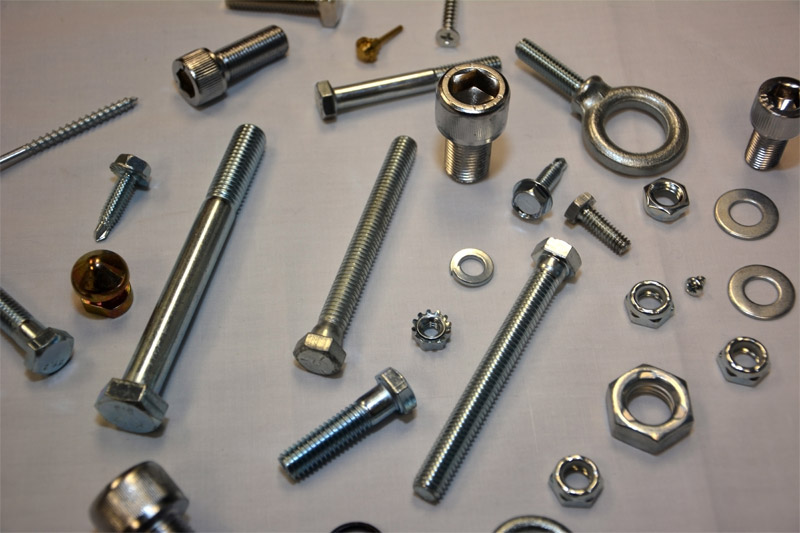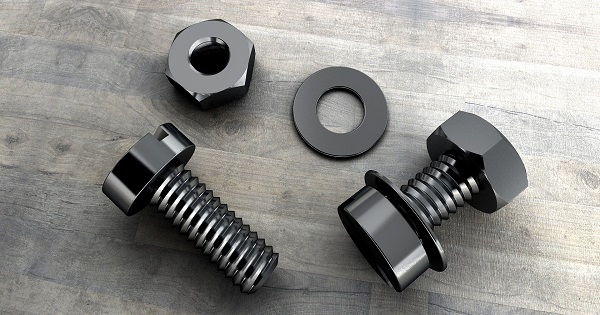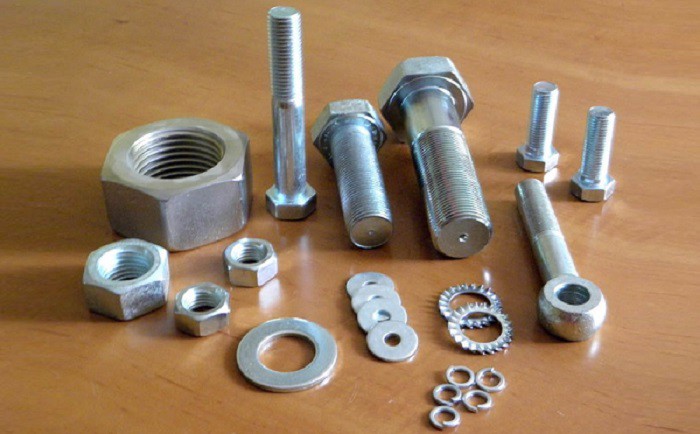In essence, any hardware that is used to mechanically attach or join components together is a fastener. It’s important to get acquainted with the different types of fasteners in the market so you know what your options are. The most common types of fasteners include:
- Bolts and screws are used in a wide variety of applications to hold objects together or in place. The definition of bolts and screws can overlap, but in general: screws are threaded and have a head on one end, while bolts are tightened with the help of a nut.
- Concrete anchors are heavy-duty fasteners used to connect objects to concrete. Anchor bolts can be cast in place or drilled in place.
- Nuts refer to fasteners with a threaded hole. These are used in conjunction with bolts, and they come in different shapes and sizes. Some of the most common examples are coupling nuts, flange nuts, and hex nuts.
- Threaded inserts or threaded bushings are used to create a metal thread in an object. These serve as the female thread that will support the fastener with the male threading, which often comes in the form of bolts and screws.
- Rivets are permanent mechanical fasteners used to quickly join two plates together.
- Washers look like a thin, flat plate with a hole in the middle. They are often used to distribute the load of threaded fasteners more evenly, as spacers, to absorb vibration, or to prevent liquid from seeping in.
Shopping for the right kind of fastener can be quite confusing, especially if you are presented with so many options. To find the fastener that best fits your needs, you need to keep these 4 details in mind when visiting a supplier or going to the hardware:
Application

Before getting in touch with a supplier, you need to have a good idea of what the fastener will be used for, as well as the standards it must be subjected to. Will the fastener be used in high pressure or high temperature applications, or will it be used in general applications? It’s best to acquaint yourself with common bolting specifications so you can relay your exact requirements to the fastener supplier you are in contact with.
Also, pay attention to the threads required by the application. Fasteners with coarser threads are great for quick assemblies, while those with finer threads provide a more secure connection.
Size
Does the fastener fit the equipment or object it will be used in? If you can’t find the right fastener size, then it’s a good idea to get in touch with a manufacturer. It’s not unusual for these companies to develop different sizes of fasteners that conform to their clients’ particular standards.
Material
The material the fastener is made of affects not only the costing, it also dictates the strength, corrosion resistance, and other important qualities of the fastener. Stainless steel is a popular material due to its durability and high tensile strength. Silicon bronze is a costly option that is used in marine settings due to its high corrosion resistance. Brass and aluminum are softer materials, but brass has an attractive appearance and aluminum provides an edge when the project requires fasteners with a very specific weight range.

Coating
Fasteners are coated primarily to protect them from corrosion. Chrome offers a layer of protection as well as added visual appeal. Zinc offers the same level of protection, but it’s also prone to rusting if to exposed moisture or high humidity and once it has been damaged. Another option is galvanizing, but because this process coats the fastener with a thick layer of zinc, it is not often used for bolts and nuts or in applications where components need to fit tightly against each other.
Fasteners come in many different forms, shapes, and sizes, and finding the right one will be a much faster task if you know exactly what you are looking for. Keep these 4 things in mind the next time you need to shop for fasteners so you can easily narrow down your selection.

